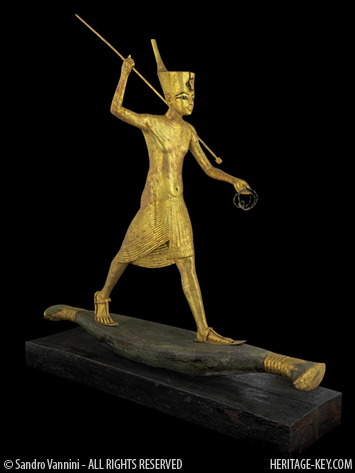 The news is awash with Barack Obamas plan to surge roughly 30,000 US troops into the country on a short-term basis.
The news is awash with Barack Obamas plan to surge roughly 30,000 US troops into the country on a short-term basis.
Some consider it a necessary measure to protect American security, while others think hes leading the United States into the next Vietnam.
It’s an important debate. He might have just made the most important foreign policy decision of his presidency.
Ever since the news broke I havebeen thinking about what lessons ancient history has to teach us about making a choice like this.
In ancient times much of Afghanistan was known as “Bactria” and played a significant role in the Persian and Hellenistic empires. The country has a turbulent history – and one that has a few lessons to teach foreign forces.
Lesson 1: The Persians are the Only Ones who can Hold Afghanistan
Of all the ancient empires that were foreign to Afghanistan, the Persians were the most successful at holding onto the country. They controlled most of the territory from at least asfar back asCyrus the Great (6th century BC) up until the Persianswere overrun by Alexander the Great in331 B.C.
Their rule was cruel at times.One passageI read in theCambridge Ancient History is ratherchilling.In the area of Turkmenistan,inDecember 522 BC,The Persians (under Darius I)claimed to havekilled 55,000 of the inhabitants in a battle. “This was done by me in Bactria,” said Darius I in an inscription.
Bactria, along withother Persianterritories, was also forced topaytribute. “What I commanded, whetherby day or night, this they did,”said Darius.
Despite their occasional brutality the Persiansappear to have held onto the territory forabout 200 years, something which noforeign empire, inancient times, would come close to repeating.
Today modern day Iran shares a border, and a lot of animosity, with modern day Afghanistan. I daresay thats something to consider when making any decisions.
Lesson 2: Western Powers Never Hold Afghanistan for Long
 The military record of westernpowers in Afghanistan, during ancient times, was less than stellar. Alexander controlled Bactria for only a brief time before he died.
The military record of westernpowers in Afghanistan, during ancient times, was less than stellar. Alexander controlled Bactria for only a brief time before he died.
After that, one of his generals, Seleucus, gained control of the eastern half of Alexanders realm and founded the Seleucid Empire. Within 50 years, however, people in the Afghanistan area had declared independence and the Seleucids were tossed out.
The most notable policy move of Alexander and the Seleucids was exporting Greek culture and Greek people, eastward, into the Bactrian area. This is something that would influence that area of the world for hundreds of years to come.
The Bactrian Kingdom that took over from the Seleucids had a strong Greek component. Some of their treasures can be seen in the exhibit Afghanistan: Hidden Treasures from the National Museum, Kabul.
Lesson 3: Plan Ahead
Alexander the Great conquered Iraq, Iran, Syria and parts of Afghanistan (an accomplishment that would make George W. Bush drool) but he couldnt hold onto these conquests for more than a few years. Why? Theres one reason in particular.
He had no ready successor!
When he died his empire had no heir apparent. His generals feuded among themselves and Alexanders empire was eventually chopped up among these squabbling warlords. Among these diadochi (successors) Ptolemy I got Egypt and Seleucus I got the eastern half.
Lesson 4: Man Your Front Lines
As I wrote last summer – when the Roman Emperor Trajan led his troops into Iraq he threw the empire into a debacle that his successor, Hadrian, had to clean up. Yes,Trajan succeeded in conquering the Parthians, but he had no way to control them.
After Trajan died Hadrian was forced to pull out of these ill-conceived conquests and stablize the eastern frontier.
And that was Iraq, the Romans never got into Afghanistan.
This same exercise was essentially repeated in Scotland after it became apparent that the Antonine Wall could not be held unless the Romans committed troops to the area that they did not have.
The Romans may not have managed to control the Middle East, but their influence permeated elsewhere throughout the world. Western civilization has so much in common with Ancient Rome. Our culture, religion, writing and even politics (ie- the Senate) are heavily influenced by this ancient civ. Maybe lesson 5 could be that attack can be cultural rather than military, although I doubt that Obama follow that piece of advice!




